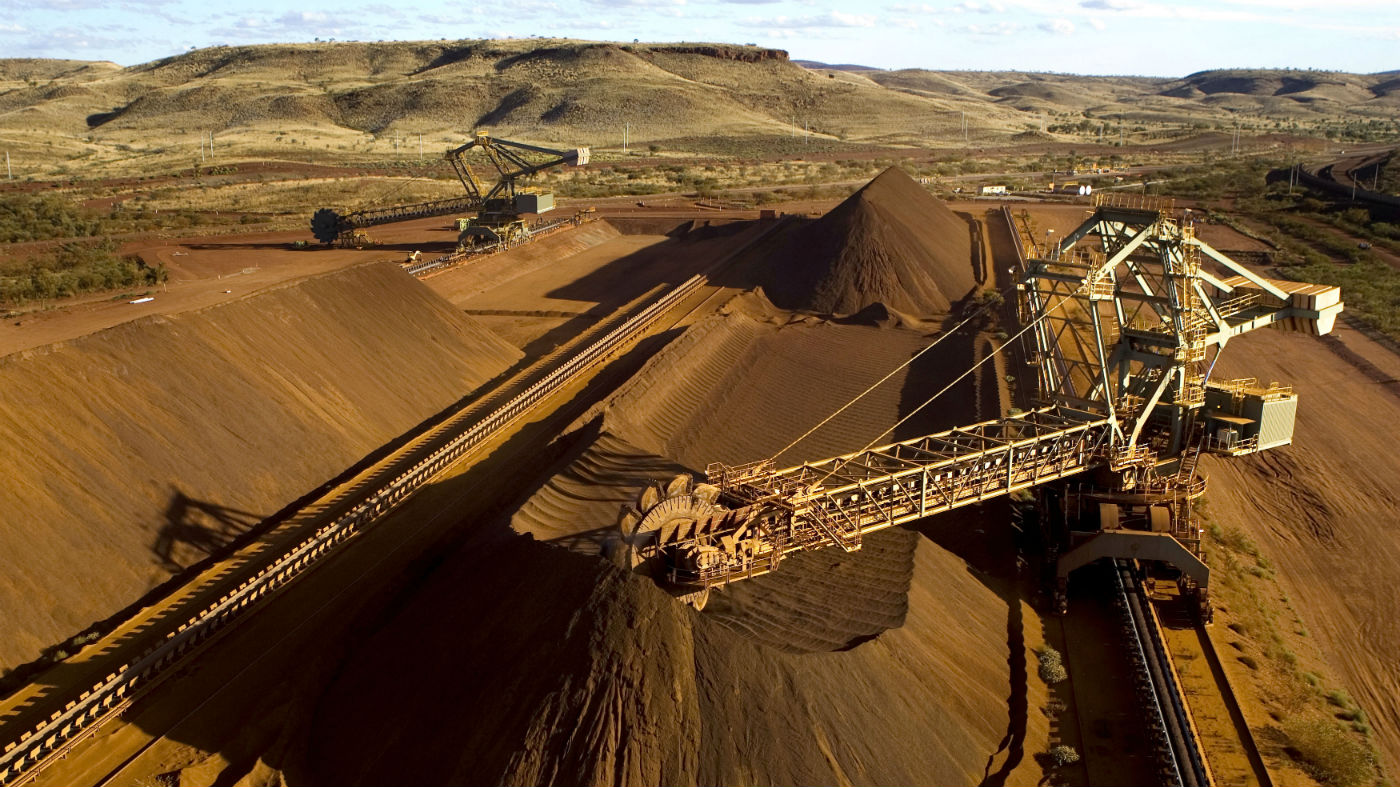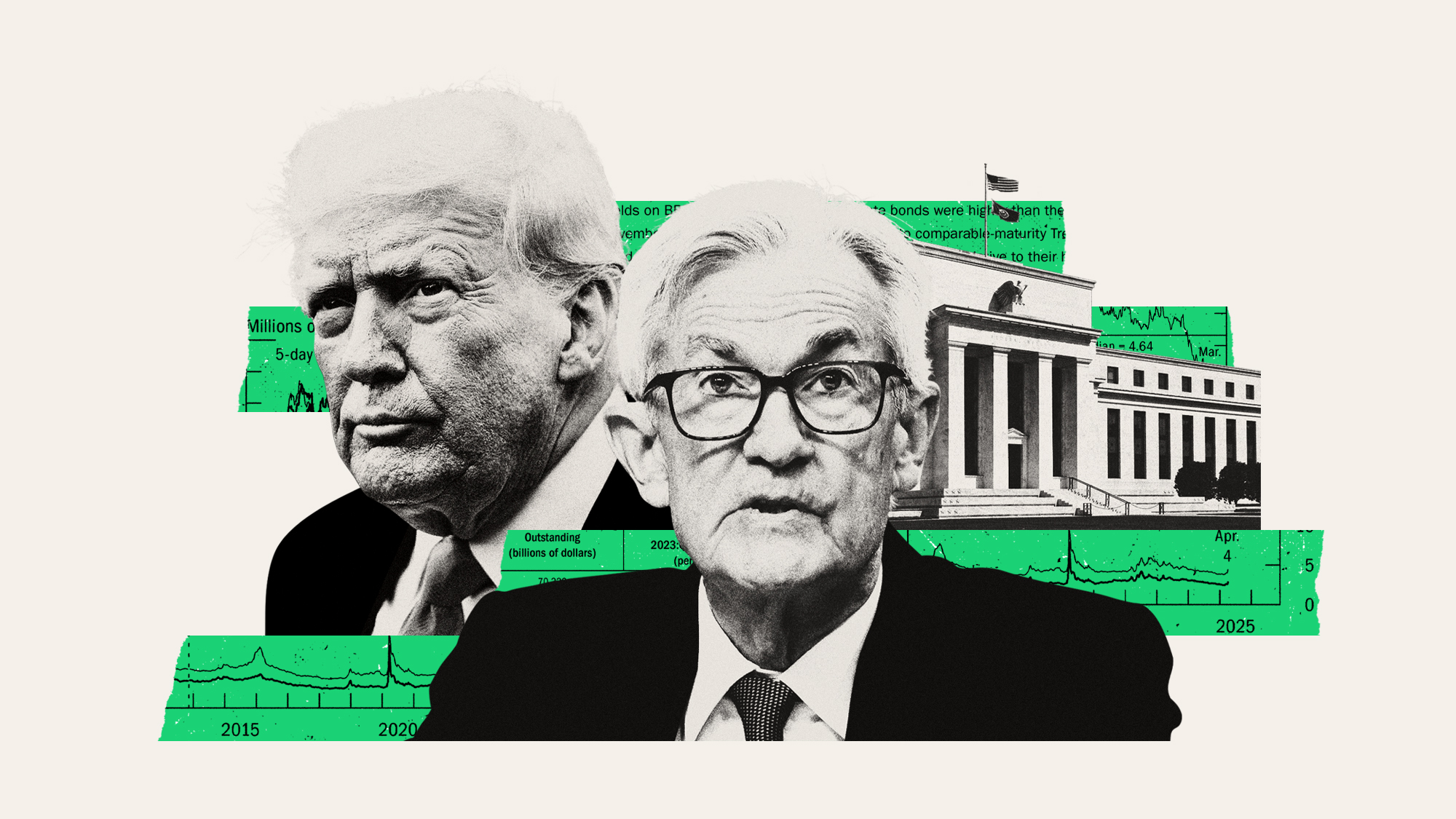Why everyone’s talking about Rio Tinto
What next for the mining giant after the destruction of sacred Aboriginal sites in Australia?

A free daily email with the biggest news stories of the day – and the best features from TheWeek.com
You are now subscribed
Your newsletter sign-up was successful
Rio Tinto is on the search for a new chief executive following an inquiry into the destruction of a 46,000-year-old sacred Aboriginal site in Western Australia.
The world’s second largest mining company confirmed on Friday that CEO Jean-Sébastien Jacques will step down while Chris Salisbury, chief executive iron ore, and Simone Niven, group executive corporate relations, will also leave their roles.
What happened?
The Week
Escape your echo chamber. Get the facts behind the news, plus analysis from multiple perspectives.

Sign up for The Week's Free Newsletters
From our morning news briefing to a weekly Good News Newsletter, get the best of The Week delivered directly to your inbox.
From our morning news briefing to a weekly Good News Newsletter, get the best of The Week delivered directly to your inbox.
Two ancient caves at Juukan Gorge in Western Australia’s Pilbara region were destroyed in May, despite the opposition of Aboriginal traditional owners. The decision “sparked widespread condemnation from shareholders and the public”, BBC News reports.
After caving in to pressure, Rio Tinto announced the shake-up of its executive team.
The process to identify Jacques’ successor is underway and he will remain as CEO until 31 March 2021 or when a replacement is appointed. Salisbury steps down with immediate effect and will leave Rio Tinto on 31 December. Niven will also depart on 31 December.
In a statement Rio Tinto said it “deeply regrets” the events at Juukan Gorge. Chairman Simon Thompson added: “What happened at Juukan was wrong and we are determined to ensure that the destruction of a heritage site of such exceptional archaeological and cultural significance never occurs again at a Rio Tinto operation.
A free daily email with the biggest news stories of the day – and the best features from TheWeek.com
“We are also determined to regain the trust of the Puutu Kunti Kurrama and Pinikura people and other traditional owners.”
‘An act of barbarism’
Friday’s long anticipated announcement was “further evidence of a tectonic shift in the power balance within corporate Australia”, says broadcaster ABC. Even late last week the company was “desperately resisting pressure” to dump Jacques.
Describing the Juukan Gorge catastrophe as “an act of barbarism”, ABC’s Ian Verrender said: “It was the equivalent of the Taliban’s 2001 detonation of the world’s tallest standing Buddhas in Afghanistan’s Bamiyan Valley, which was condemned across the globe. Where the Taliban acted out of a misguided sense of religion, Rio did it for the money.”
The sacking of the three executives “isn’t enough for mining investors”, The Guardian reports, and shareholder and indigenous groups insist the move “must signal the start of a major overhaul of the way all mining companies operate in the region”.
Australian newspaper The Age says Rio Tinto will “need to do more to rebuild its standing”.
What happens next?
The next chief executive has their “work cut out”, says The Australian, and faces a “laundry list of cultural and corporate issues to work through”.
Indigenous leaders - and shareholders - are “demanding an independent review into all of the miner’s agreements with traditional landowners across its Australian operations”, says The Sydney Morning Herald.
Debby Blakey, the chief executive of the Hesta community group, said an independent review was still necessary despite the removal of the three executives. “The board has yet to adequately demonstrate to investors that they have appropriate governance and oversight arrangements in place to manage this risk,” Blakey said.
The National Native Title Council, which represents 70 traditional owner groups and native title bodies, supports Hesta’s proposal, the Sydney Morning Herald added.
The council’s Jamie Lowe said: “It took a catastrophe for people to start looking at this, it took something this dramatic. But to press the reset button, there needs to be a forensic review of their systems, of the culture within their workplace and the values within their workplace.”
Australia’s treasurer Josh Frydenberg has today called on Rio Tinto to appoint an Australian as its next chief executive, the Financial Times reports.
“Rio Tinto is one of the great companies of the world with a proud Australian history,” he said. “With the vast majority of its revenue coming from Australia, it is fitting to once again see an Australian as chief executive along with the majority of the board.”
Mike Starling is the former digital features editor at The Week. He started his career in 2001 in Gloucestershire as a sports reporter and sub-editor and has held various roles as a writer and editor at news, travel and B2B publications. He has spoken at a number of sports business conferences and also worked as a consultant creating sports travel content for tourism boards. International experience includes spells living and working in Dubai, UAE; Brisbane, Australia; and Beirut, Lebanon.
-
 Why is the Trump administration talking about ‘Western civilization’?
Why is the Trump administration talking about ‘Western civilization’?Talking Points Rubio says Europe, US bonded by religion and ancestry
-
 Quentin Deranque: a student’s death energizes the French far right
Quentin Deranque: a student’s death energizes the French far rightIN THE SPOTLIGHT Reactions to the violent killing of an ultraconservative activist offer a glimpse at the culture wars roiling France ahead of next year’s elections
-
 Secured vs. unsecured loans: how do they differ and which is better?
Secured vs. unsecured loans: how do they differ and which is better?the explainer They are distinguished by the level of risk and the inclusion of collateral
-
 Trump wants a weaker dollar, but economists aren’t so sure
Trump wants a weaker dollar, but economists aren’t so sureTalking Points A weaker dollar can make imports more expensive but also boost gold
-
 Can Trump make single-family homes affordable by banning big investors?
Can Trump make single-family homes affordable by banning big investors?Talking Points Wall Street takes the blame
-
 Is a financial market crash around the corner?
Is a financial market crash around the corner?Talking Points Observers see echoes of 1929
-
 Trump wants to revive coal. Will it work?
Trump wants to revive coal. Will it work?Talking Points Wind, solar and natural gas are ascendant
-
 Is Trump America's CEO?
Is Trump America's CEO?Talking Points The party of free enterprise turns to 'cronyism'
-
 Trump's threats to fire Jerome Powell are unsettling the markets
Trump's threats to fire Jerome Powell are unsettling the marketsTalking Points Expect a 'period of volatility' if he follows through
-
 Rich people are 'powering' America's economy
Rich people are 'powering' America's economyTalking Points The income gap sets a new record
-
 Why is the threat of stagflation rising?
Why is the threat of stagflation rising?Talking Points Inflation is sticky. Trump's tariffs won't help.